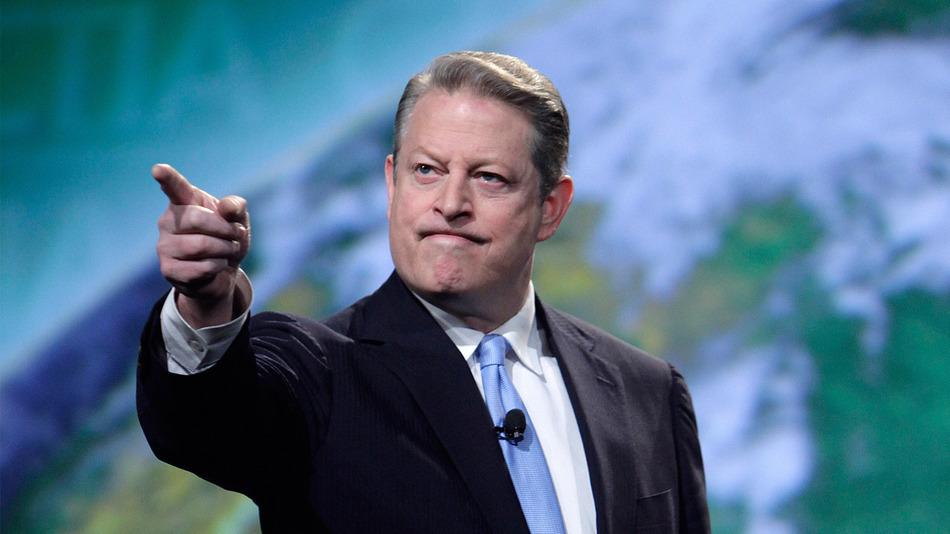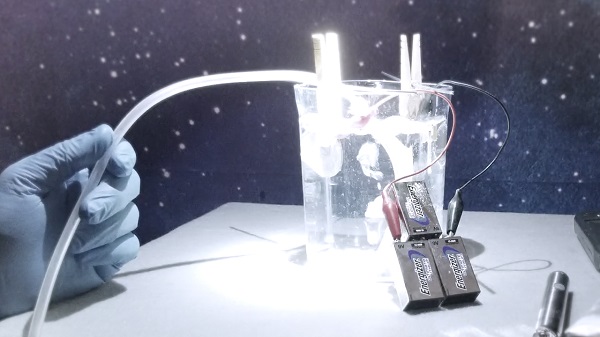Gore’s climate surveillance faces backlash over privacy concerns amid U.N. tensions
09/27/2025 / By Willow Tohi

- Al Gore unveils AI-powered satellite system to monitor global pollution down to individual households.
- President Trump lambasts climate science as a “greatest con job” at U.N., doubling down on fossil fuels.
- Critics decry the system as invasive surveillance, raising privacy concerns and charges of elitist overreach.
- The initiative highlights disparities between corporate/government-scale pollution and household-level tracking.
- Debate intensifies over balancing environmental protection with civil liberties and democratic accountability.
On Wednesday, September 24, former Vice President Al Gore launched an ambitious AI-driven pollution-tracking system capable of pinpointing emissions down to individual neighborhoods and backyards—a move coinciding with President Donald Trump’s heated dismissal of climate change as “the greatest con job ever” at the United Nations. The Climate TRACE coalition’s technology, using satellites, sensors and artificial intelligence, targets particle pollution responsible for millions of deaths annually, aiming to empower communities with hyper-local environmental data. Yet critics, including privacy advocates and conservative leaders, argue the system risks morphing into a tool of government overreach, underscoring the fraught intersection of environmental governance and individual freedoms.
The surveillance solution: “Truth shall set you free”
Gore’s expanded Climate TRACE network processes data from 300 satellites, 30,000 ground sensors and advanced machine learning to identify 137,095 pollution sources globally, designating 3,937 as “super emitters.” The initiative, announced via a public-facing website, maps emissions in 2,500 cities, including New York, Dhaka and Karachi, and aims to integrate real-time updates into weather and allergy apps within a year.
“Our faith tradition teaches us that truth sets us free,” Gore emphasized in a video interview, framing transparency as a moral imperative. He cited the example of Louisiana’s Cancer Alley, where petrochemical emissions rank among the world’s highest, to argue that localized data could drive accountability. “People deserve to know what’s poisoning their homes,” he said.
Yet the project’s precision has spurred alarm. “Gore’s technology doesn’t just track emissions—it’s a play for control,” said libertarian lawyer Michelle Fields. “The moment you map someone’s backyard, you transform environmentalism into a tool for surveillance.”
Political rhetoric and the clash of worldviews
While Gore’s team pitched the system as a public health breakthrough, President Trump’s U.N. address directly countered it. “All these predictions… have cost countries their fortunes,” Trump declared, echoing his “energy dominance” agenda promoting oil, gas and coal. His administration’s withdrawal from the Paris Agreement—a second such move under his tenure—invigorated debates over climate denial and energy policy.
The juxtaposition contrasted sharply. Gore, speaking from a post-apocalyptic metaphor, called pollution a “moral failing,” while Trump framed climate action as a drain on national sovereignty. “They want to regulate your life,” Trump said, drawing applause from fossil fuel allies.
Historically, Gore’s climate pronouncements have cut similarly starkly against partisan lines. His 2015 advocacy for penalizing “deniers” and his religious framing of climate stewardship as a divine mandate—a view he restated to Interview Magazine—have long drawn flak for conflating morality with political power.
Privacy and power: The libertarian backlash
Critics warn the tracking initiative’s granularity could erode privacy. “This isn’t climate science—it’s Big Brother [in] your backyard,” remarked privacy advocate Jonathan Smith. “If regulators demand emissions cuts, this tech turns Grandma’s woodstove into a target. Where’s the Due Process?”
Such concerns resonate with conservative movements distrustful of centralized environmental governance. Meanwhile, Natural News’ critique, cited in the knowledge base, scorned Gore as a “climate buffoon,” highlighting past failures like his media appearances conflating sea-level rise with tidal changes.
For now, Climate TRACE’s data remains advisory—no enforcement mechanism exists. But advocates like Gore envision a future where accountability is “personalized.” “Every household should know their impact,” he said, leaning into grassroots activism.
Historical context: A legacy of polarization
Gore’s career mirrors the fractious history of climate politics. In 2006’s An Inconvenient Truth, he galvanized environmentalism, yet his advocacy for top-down carbon trading schemes sparked accusations of elitism. Similarly, his 2015 call for punitive measures against “deniers” drew fire for threats to free speech—a tension resurfacing in today’s debate over surveillance.
The UN’s role further complicates matters. While Secretary-General Antonio Guterres pushes for decarbonization, Trump’s UN speeches underscore a growing global divide. “The fight isn’t just about the environment—it’s about who holds the levers of power,” said analyst Maria Lopez.
A crossroad of progress and liberty
As Gore’s satellites surveil the atmosphere, the world confronts a defining choice: Can environmental protection exist without eroding privacy and decentralizing control? For now, the Climate TRACE system remains a symbol of ambition, distrust and the unresolved tension between human survival and human agency.
Sources for this article include:
Submit a correction >>
Tagged Under:
Al Gore, big government, Climate, environ, Glitch, green tyranny, Liberty, privacy watch, surveillance, Trump, UN
This article may contain statements that reflect the opinion of the author
RECENT NEWS & ARTICLES
Natural.News is a fact-based public education website published by Natural News Features, LLC.
All content copyright © 2018 by Natural News Features, LLC.
Contact Us with Tips or Corrections
All trademarks, registered trademarks and servicemarks mentioned on this site are the property of their respective owners.





















